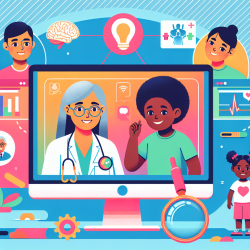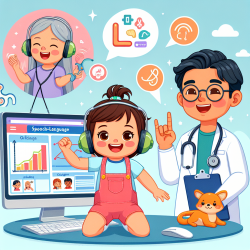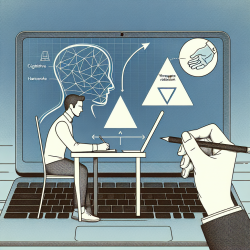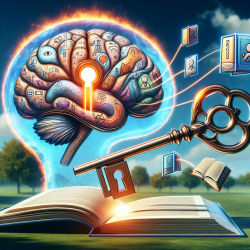Social Anxiety Disorder (SAD) in adolescents is a significant mental health issue, often leading to long-term impairment in social, academic, and personal domains. As practitioners, understanding and effectively treating SAD is crucial to improve the quality of life for affected adolescents. Recent research by Leigh and Clark (2018) on applying the cognitive model of Clark and Wells (1995) to adolescents provides valuable insights that can enhance treatment outcomes.
Understanding the Cognitive Model of Clark and Wells
The cognitive model of Clark and Wells (1995) posits that social anxiety is maintained by specific cognitive processes, including:
- Self-focused attention
- Negative self-imagery
- Safety behaviors
- Anticipatory and post-event processing
This model has been successfully applied to adults, and Leigh and Clark’s (2018) research suggests that a developmentally sensitive adaptation of this model can also be effective for adolescents.
Key Findings and Implications for Practitioners
The research highlights several critical points for practitioners working with adolescents:
1. Self-Focused Attention
Adolescents with SAD often focus excessively on their internal state (e.g., how anxious they feel) rather than external social cues. This self-focus can exacerbate anxiety and impair social performance. Practitioners can use attention training exercises to help adolescents shift their focus outward.
2. Negative Self-Imagery
Negative self-imagery, where adolescents visualize themselves as socially awkward or failing, perpetuates anxiety. Techniques such as video feedback, where adolescents view recordings of themselves with supportive commentary, can help correct these distorted self-images.
3. Safety Behaviors
Adolescents with SAD often engage in safety behaviors (e.g., avoiding eye contact) to prevent feared outcomes. These behaviors, however, maintain anxiety by preventing disconfirmation of negative beliefs. Behavioral experiments that encourage adolescents to drop these safety behaviors can be beneficial.
4. Anticipatory and Post-Event Processing
Anticipatory anxiety (worrying about future social events) and post-event rumination (dwelling on past social interactions) are common in adolescents with SAD. Cognitive restructuring techniques can help adolescents challenge and modify these unhelpful thought patterns.
Encouraging Further Research
While the application of the cognitive model shows promise, further research is needed to explore its full potential and refine treatment techniques. Practitioners are encouraged to stay informed about ongoing research and consider participating in studies to contribute to the evidence base.
Conclusion
Adopting a developmentally sensitive cognitive approach, as outlined by Leigh and Clark (2018), can significantly improve treatment outcomes for adolescents with social anxiety disorder. By focusing on key cognitive processes and utilizing targeted interventions, practitioners can help adolescents overcome their social fears and lead more fulfilling lives.To read the original research paper, please follow this link:
Understanding Social Anxiety Disorder in Adolescents and Improving Treatment Outcomes: Applying the Cognitive Model of Clark and Wells (1995).










